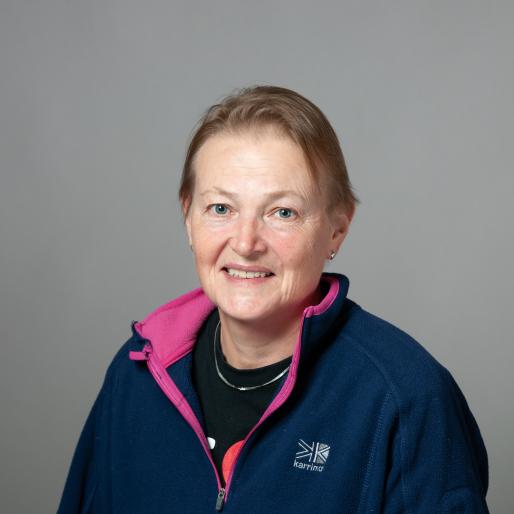The big picture: using wildflower strips for pest control
The US based Foundation for Innovation in Healthy Food conferred its first ever Heroes Award on two Rothamsted Scientists at a ceremony in St Louis, Missouri yesterday. Dr Peter Shewry and Dr Alison Lovegrove received the honour for their work on improving the dietary fibre content of wheat.
Dr. Lovegrove, who leads the grain quality group at Rothamsted Research and is section head for Cereal Improvement said, “We are surprised and flattered to receive this award. In research, everything we do is a team effort. We feel that this recognition is for everyone involved.”
“We’ve been working on improving the fibre content of flour. Hardly anyone eats the recommended level of fibre. If we can increase this, it could provide health benefits in the foods we eat every day.”
Dr. Shewry, who joined Rothamsted in 1974, is also a plant scientist who began researching ways to increase wheat fibre about 15 years ago.
The pair are being honoured alongside two North American scientists, Dr. Katherine Frels and Dr. Maria Itria Ibba. The award ceremony took place at the ASA-CSSA-SSSA International Annual Meeting.
The awards are an initiative of the Foundation for Innovation in Healthy Food, which aims to improve the nutritional value of the everyday foods. Shewry and Lovegrove were the first two grain scientists in the foundation’s Coalition for Grain Fiber which supports research on boosting using grain fibre intake to improve health. The coalition aims to save thousands of lives and billions of dollars in healthcare costs globally by improving the nutritional content of white and whole wheat flour.
The coalition brings together plant breeders, food scientists, nutrition/health scientists and economists to help transform the food industry. They support non-GMO (genetically modified organisms) approaches to increasing naturally occurring dietary fibre in grains.
Wheat in bread alone accounts for over 20% of U.K. dietary intake, so it’s a natural starting point to bridge the gap between adequate and recommended fibre intake. Consumers get far too little fibre, despite the link between the intake of fibre-containing foods and positive health outcomes.
Shewry and Lovegrove, working with the UK Biotechnology and Biological Sciences Research Council institute strategic programme, Delivering Sustainable Wheat launched foundational research to increase the level of dietary fibre in wheat several years ago. They seek to improve the nutrition in staple foods without impacting their taste, feel or price.
Over 50 public and private-sector laboratory leaders in three countries and 23 U.S. states have now engaged with the Coalition for Grain Fiber to leverage the UK-developed science, including scientists with Rothamsted Research, University of Nebraska-Lincoln, CIMMYT, University of California-Davis, Cornell University and Bayer Crop Science.

Biochemist

Botanist
Rothamsted Research is the longest-running agricultural research institute in the world. We work from gene to field with a proud history of ground-breaking
discoveries in areas as diverse as crop management, statistical interpretation and soil health. Our founders, in 1843, were the pioneers of modern
agriculture, and we are known for our imaginative science and our collaborative approach to developing innovative farm practice.
Through independent research, we make significant contributions to improving agri-food systems in the UK and internationally, with
economic impact estimated to exceed £3 bn in annual contribution to the UK economy. Our strength lies in our systems approach, which combines strategic research,
interdisciplinary teams and multiple partnerships.
Rothamsted is home to three unique National Bioscience Research Infrastructures which are open to researchers from all over the world:
The Long-Term Experiments,
Rothamsted Insect Survey and the
North Wyke Farm Platform.
We are strategically funded by the Biotechnology and Biological Sciences Research Council (BBSRC), with additional support from other national and
international funding streams, and from industry. We are also supported by the Lawes Agricultural Trust (LAT).
The Biotechnology and Biological Sciences Research Council is part of UK Research and Innovation, a non-departmental public body funded by a grant-in-aid
from the UK government.
BBSRC invests to push back the frontiers of biology and deliver a healthy, prosperous and sustainable future. Through our investments, we build and support a vibrant,
dynamic and inclusive community which delivers ground-breaking discoveries and develops bio-based solutions that contribute to tackling global challenges,
such as sustainable food production, climate change, and healthy ageing.
As part of UK Research and Innovation (UKRI), we not only play a pivotal role in fostering connections that enable the UK’s world-class research and innovation system
to flourish – we also have a responsibility to enable the creation of a research culture that is diverse, resilient, and engaged.
BBSRC proudly forges interdisciplinary collaborations where excellent bioscience has a fundamental role. We pioneer approaches that enhance the equality, diversity,
and inclusion of talent by investing in people, infrastructure, technologies, and partnerships on a global scale.
The Lawes Agricultural Trust, established in 1889 by Sir John Bennet Lawes, supports Rothamsted Research’s national and international agricultural science through the provision of land, facilities and funding. LAT, a charitable trust, owns the estates at Harpenden and Broom's Barn, including many of the buildings used by Rothamsted Research. LAT provides an annual research grant to the Director, accommodation for nearly 200 people, and support for fellowships for young scientists from developing countries. LAT also makes capital grants to help modernise facilities at Rothamsted, or invests in new buildings.